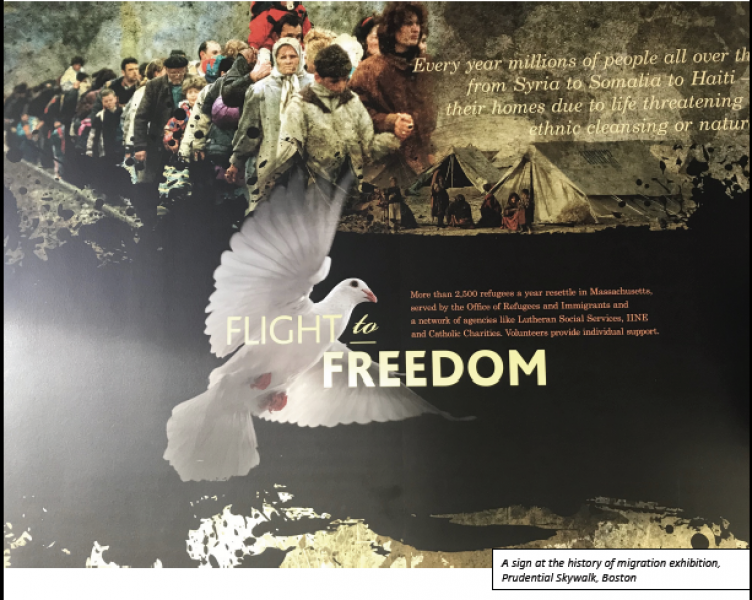As Syrian refugee families find homes in countries across the globe, an international perspective on settlement strategies is valuable. Canadian initiatives are part of that conversation, with Europe taking notice of CNC support for refugee children.
Over the past few years, the number of Syrian refugees resettled in the UK increased. Among them are thousands of vulnerable children who are at risk for mental health issues associated with fleeing conflict and persecution. Policy makers and service providers are looking to North America for ideas to better support these young newcomers.
One such person is Sarah Gaughan, Senior Policy Adviser at the Winston Churchill Memorial Trust. She received a fellowship to research best practices that impact refugee children’s mental wellbeing.
“We know from adverse childhood experiences (ACE) studies that exposure to traumatic events in childhood can have lifelong impacts on a person’s health and wellbeing,” explains Sarah. “It is therefore important to know what interventions work for children in particular.”
To that end, Sarah met with Susan Hoo, Manager of CMAS, to exchange ideas. Susan offered an overview of CMAS’s resources and services, with a focus on how the organization supports refugee children. In turn, Sarah discussed her own work and what is being done in some of the programs she visited in the US.
“We loved not only sharing what we were doing, but it was a great opportunity to hear about the policies and practices that exist in the UK, as well as other areas Sarah visited,” recalls Susan.
Sarah also met with some of the CMAS team leads, including Heather Savazzi, who heads content development.
“Sarah had questions about the Resilience Guide and workshops, and generally how CNC programs support refugee children,” says Heather. “We talked about the building blocks of resilience–especially helping children feel safe in CNC spaces and building relationships and trust.”
Besides her meeting with CMAS, Sarah spent time at WoodGreen CNC to see a program in action. The insights and practices learned from her North American travels feature in Sarah’s July 2018 report Psychosocial interventions to support refugee children: Lessons from the United States and Canada.
Of her site visit, she notes: “CMAS and WoodGreen professionals are trained to spot signs of trauma in children and in how to calm them. In doing so, their focus is to first build rapport with them, then engage them in social events. Making children feel welcome is key to this and one of the main ways of doing this is by introducing as many links to their culture as possible, including books in their own language, music and vocabulary sheets that children and teachers can use together. This is enhanced by using pictures rather than words in school settings to show that this is a safe place.”
Sarah also outlines CMAS’ mission and services, highlighting particularly relevant resources:
- Helping refugee children understand and manage big feelings and challenging behaviours
- Stress in the newcomer child
- Tips for creating a safe space for newcomer families
- Caring for Syrian Refugee Children: A Program Guide for Welcoming Young Children and Their Families
“The guidance and training that CMAS provides is evidence-based and ensures consistency in provision across childcare providers delivering services to refugee children across Canada,” writes Sarah.
She suggests that this model could improve how Early Years workers in the UK respond to the specific needs of refugee and migrant children.
It is wonderful in and of itself to see firsthand the positive impact we make on the refugee children in our CNC programs. Even better? Knowing that our practices may benefit children who live an ocean away.








